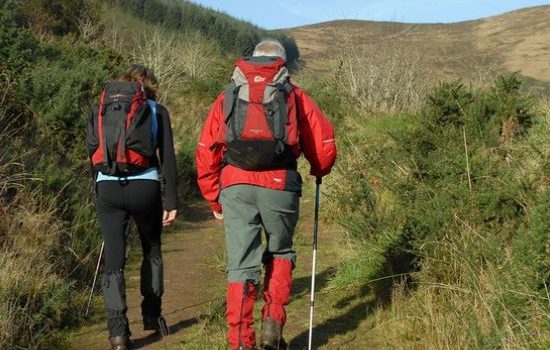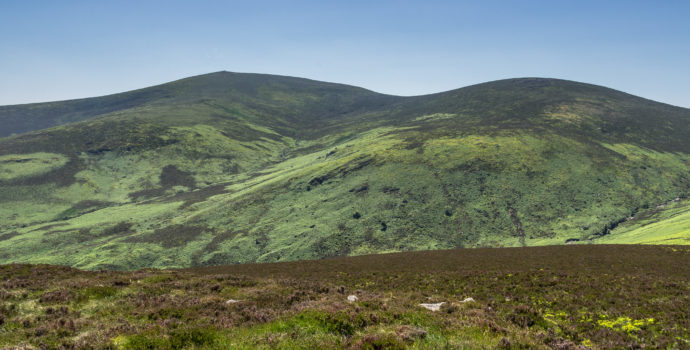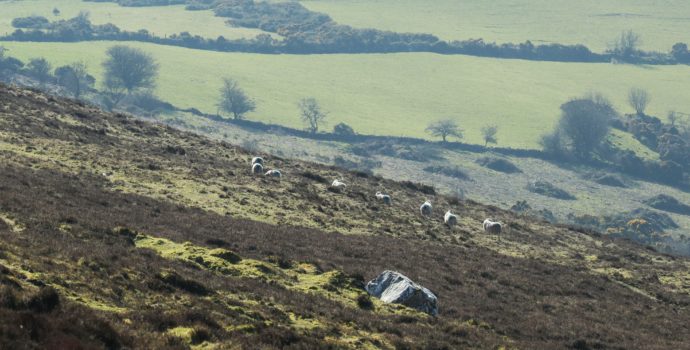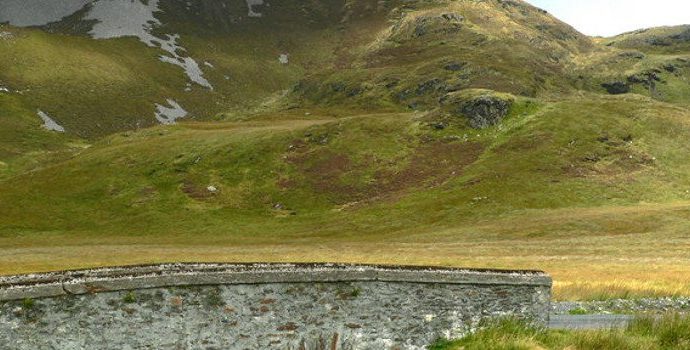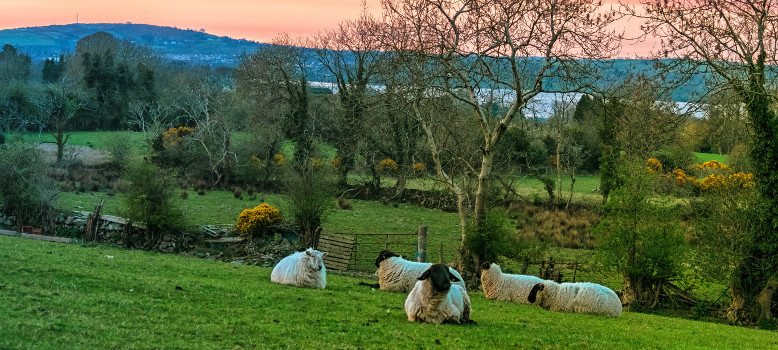
IFA has called for a strong environmental scheme to be put in place for upland areas which recognises the contribution hill farmers make in terms of protecting the environment, carbon mitigation and the provision of public goods.
Opening the IFA 2019 National Hill Sheep Forum in Glendalough Co. Wicklow, IFA South Leinster Chairman Tom Short said that the Minister for Agriculture Michael Creed and the EU Commission must recognise and reward the positive value that hill farmers bring to climate action.
“Farm incomes are under serious pressure in these areas and the value of the environment must be taken alongside agricultural production in the formulation of supports to hill farmers,” he said.
Tom Short said this can only be done by a combination of cattle and sheep production, direct payments and a strong environmental scheme in the forthcoming CAP negotiations. “Hill sheep production is the predominant enterprise among the 30,000 farmers who farm and protect the environment in hill and mountain grazing areas.”
He said the forthcoming 2019 ANC payment increase, secured by the IFA in last year’s Budget, is an important income boost, but this must be followed by further direct payment supports.
Speaking to hill farmers from around the country, the IFA South Leinster Chairman said the impact of Brexit will be felt in all farms, particularly the most vulnerable such as those in mountain and hill areas.
Hill Sheep priorities
IFA National Sheep Chairman Sean Dennehy said that a targeted direct payment for sheep must be part of the next CAP, with a substantial increase on the rate from the current level of €10 per ewe in the Sheep Welfare scheme. He said IFA has proposed a targeted payment of €30 per ewe.
“This level of support is necessary to sustain sheep numbers in hill areas where keeping stock is essential to the maintenance of the environment. Farm incomes in hill areas according to the Teagasc National Farm Survey are some of the lowest in the agricultural sector and are very dependent on direct payments.”
Out of a total of 2.5m breeding ewes in Ireland, Sean Dennehy said 49% are of a mountain breed. He said the 2018 Sheep Census shows that there are 800,133 mountain breeding ewes and a further 448,412 mountain cross breeding ewes in the country.
Sean Dennehy said the development of lamb markets which return a strong viable price for quality lamb was essential to the sheep sector. He said Irish lamb is a top quality natural light meat produced in the perfect environment to the highest standards in the world.
“Sheep farmers are very frustrated when the see lamb prices constantly under pressure and more costs being pushed back on them all the time with the likes of compulsory EID tagging this year. Minister Creed and the meat processors have yet to show sheep farmers any benefit from EID tagging other than additional costs, bureaucracy and red tape.”
Hill farming supports
In relation to the environmental schemes, National Hill Committee Chairman Flor McCarthy said the current GLAS scheme is not rewarding the environmental good that hill farms provide. The current max payment at €5,000 is too low and should be increased to €10,000 in the next CAP. Farmers who have designated Natura land are not being properly compensated for restrictions and these high nature value areas must have a meaningful scheme in the next RDP.
The recent expenditure review from the Department of Public expenditure highlights that around 10% of GLAS payments are paid on commonage land to 8,890 farmers in the scheme. The potential of commonage land is not fully reached, as 13,000 farmers claim commonage land, meaning a significant amount of such land is not in the scheme.
One of the big challenges for hill farmers is maintaining eligibility for their land for payments. IFA is calling for flexibility in the next CAP which would allow farmers to be rewarded for a biodiversity value.
Flor McCarthy said the increase in the ANC payments this year to a maximum in hill areas of €4,240 is welcome. However, the Minister’s decision to split the payment 85%/15% is disappointing. It sends a very poor signal to farmers who desperately need these payments.
In the next Rural Development Plan, IFA will be making a strong case for the maximum payment to increase to €6,000. This payment is necessary due to the limitations on land usage and low level of farm income.
The IFA Hill Chairman warned that the Government must put in place a properly-funded Rural Development Plan up to 2027 of €5bn. This is 25% greater than the existing programme. This will allow meaningful measures across a wide range of issues many of them of significance to hill farmers.

